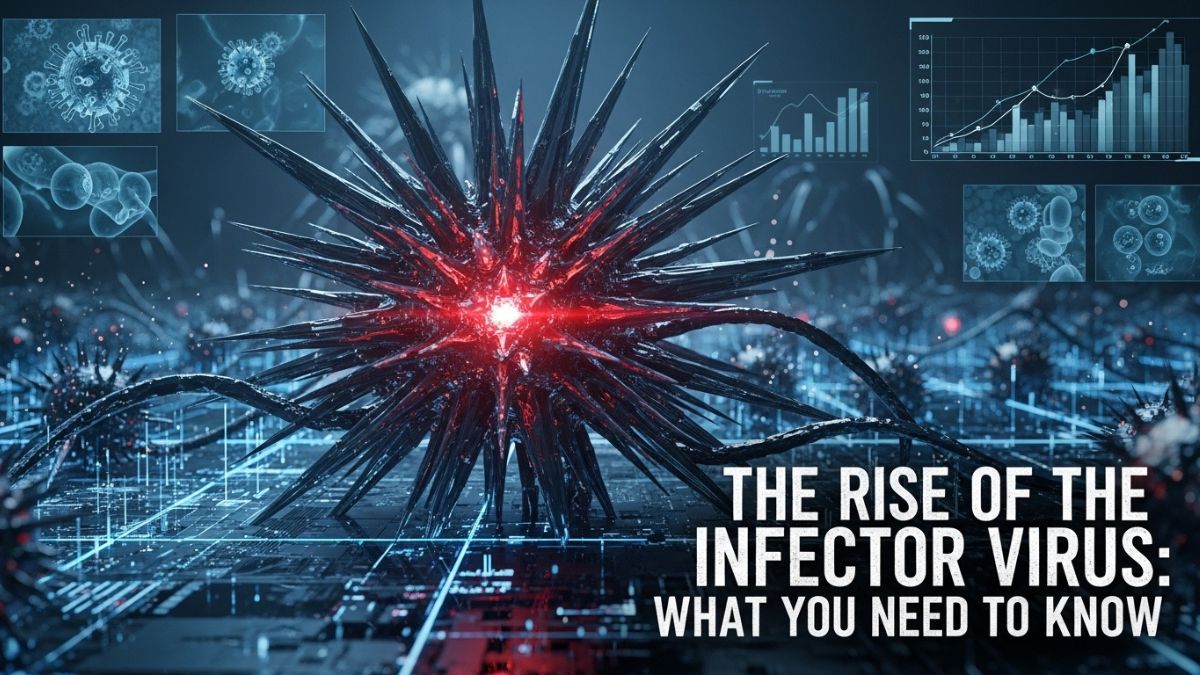In a world constantly striving for better identity security, the term “Ivaid” has started to surface in conversations around digital authentication, smart ID solutions, and decentralized identification frameworks. At its core, Ivaid refers to an intelligent, verified authentication identification system that combines cutting-edge technology with privacy-focused design. From border security to health care verification, Ivaid is laying the foundation for a smarter, more secure future.
Understanding What Ivaid Means
Ivaid is a coined term representing “Intelligent Verified Authentication Identification.” It implies a technological system that ensures the identity of an individual or entity is authenticated in real time using smart, encrypted, and often decentralized frameworks. The beauty of Ivaid lies in its adaptability — it can work across industries, geographies, and platforms.
Why Traditional Identification Systems Fall Short
Conventional ID methods like physical cards, passwords, and even biometrics have limitations. They are prone to theft, duplication, fraud, or human error. Ivaid addresses these issues by implementing layered verification techniques such as biometric scanning, blockchain records, and real-time AI validation.
Core Technologies Behind Ivaid
The power of Ivaid is made possible by an amalgamation of advanced technologies. At the center lies artificial intelligence, which helps recognize identity patterns and detect anomalies. Blockchain provides tamper-proof records, ensuring authenticity. Biometric verification like facial recognition and iris scanning adds a human-centric layer of security. Together, these components build a resilient identity infrastructure.
The Role of Artificial Intelligence in Ivaid
AI plays a critical role in monitoring behavior, predicting fraud, and continuously improving verification accuracy. It enables the system to adapt and learn, making future identifications even faster and more reliable. AI helps reduce false positives and negatives, ensuring precision in high-risk environments like airports or financial systems.
Blockchain Integration for Tamper-Proof Identity
Blockchain technology ensures that identity data is immutable. Every interaction, update, or check is recorded in a secure ledger. This prevents unauthorized access or alterations to a person’s identity profile. Decentralization also allows for more user control, a key principle behind modern digital identity trends.
Biometrics and Ivaid Synergy
Biometrics form a physical layer of Ivaid — fingerprints, iris patterns, voice prints, and facial geometry provide secure ways to verify individuals. Unlike passwords or tokens, biometrics cannot be easily shared or lost, making them ideal for high-security identification. Ivaid leverages biometric data with strict encryption protocols to maintain both safety and privacy.
Applications of Ivaid in Government Services
Governments across the globe are seeking secure, efficient ways to issue IDs, track citizen data, and authenticate services like voting or tax filing. Ivaid simplifies these processes by offering a single, verifiable digital identity that works across departments. It reduces paperwork, speeds up service delivery, and minimizes fraud in public systems.
Ivaid’s Impact on Healthcare Systems
In healthcare, accurate identity verification is vital. Ivaid can unify patient records across hospitals, prevent medical fraud, and streamline access to health insurance. It ensures that patients get the right care and that their medical history remains private and accessible only to authorized professionals.
Boosting Financial Security with Ivaid
Financial institutions rely heavily on identity checks. Ivaid enhances Know Your Customer (KYC) procedures, simplifies onboarding, and improves transaction security. With real-time verification and risk analysis powered by AI, banks can drastically reduce fraud and identity theft.
E-Commerce and Retail: A New Age of Verification
Online businesses need to verify users without creating friction. Ivaid offers seamless yet secure ways to confirm identities during purchases, account creation, or transactions. It allows retailers to trust their users without compromising user experience, increasing customer satisfaction and retention.
Education and Digital Credentials
Educational institutions can use Ivaid to issue digital diplomas, verify student records, and prevent academic fraud. Students benefit from a portable, verifiable identity they can use when applying for jobs or further studies globally, without dealing with endless paperwork or notary attestations.
Travel and Border Control Revolution
Border security and immigration processes are often slow and tedious due to manual ID checks. With Ivaid, travelers can be identified instantly through biometric or digital passports. It speeds up customs, enhances security, and makes international travel smoother.
Challenges Facing Ivaid Implementation
Despite its benefits, implementing Ivaid comes with challenges. Privacy concerns, data protection laws, technological literacy, and infrastructure availability are major hurdles. In developing countries, digital access is still limited. Governments and private sectors must collaborate to ensure equitable access and privacy-first design.
Ethical Considerations in Ivaid Systems
Deploying identity technologies at scale raises ethical questions. How is user data stored? Who controls access? What happens in cases of misidentification? A responsible Ivaid system needs clear regulations, transparency, and public education. Consent must be foundational, and opt-out features must exist.
The Future of Ivaid and Global Adoption
As technology advances, Ivaid will likely become standard practice across the globe. Nations will move toward unified ID systems with global interoperability. Ivaid could become the bridge between national ID systems and international mobility. Think of it as the digital passport of the future — secure, smart, and universal.
How Ivaid Empowers the Individual
Perhaps the most transformative feature of Ivaid is user empowerment. Instead of governments or corporations holding your data, you retain control. You choose what to share, with whom, and for how long. This user-centric model reshapes power dynamics in identity management, giving more autonomy to the individual.
Conclusion
Ivaid is more than just a digital ID concept — it represents a shift in how we think about identity, security, and access. It blends innovation with necessity, ensuring people can move, interact, and transact with confidence. As it continues to evolve, Ivaid promises to redefine not just systems but lives, empowering people with trusted identity tools in an increasingly connected world.
FAQs
What makes Ivaid different from traditional ID systems?
Ivaid uses AI, biometrics, and blockchain to create a more secure, intelligent, and flexible identity verification system compared to traditional paper or plastic IDs.
Is Ivaid safe to use in terms of personal privacy?
Yes, Ivaid systems are designed with privacy at the core, using end-to-end encryption and user consent models to protect data.
Can Ivaid be used internationally?
As global adoption increases, Ivaid has the potential to serve as a universal ID for travel, banking, and healthcare worldwide.
How does Ivaid help reduce fraud?
By combining real-time biometric verification with immutable blockchain records, Ivaid minimizes the chances of identity theft or impersonation.
Will I need special devices to use Ivaid?
Most modern smartphones or biometric devices are compatible with Ivaid. Governments and organizations may provide tools for broader access in underprivileged areas.















